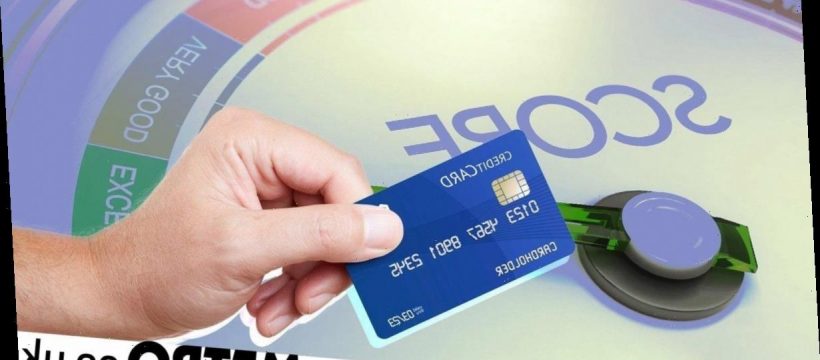Although we’re not quite at the dystopian Black Mirror reality of having our very existence defined by a social score, it’s plain to see that everything we do is controlled by algorithms of suitability.
One of these is our credit score, which is used to decide whether you’re given everything from credit cards to jobs to phone contracts.
You can check your credit score in a number of ways, and will see a number (sometimes between 0 and 700 or 0 and 999 depending on where you go).
It’s worth noting that the number you’ll see on sites like ClearScore and Experian aren’t ever seen by companies that search you. This is more for your guidance.
Instead, those checking credit will see various factors that signpost to them whether you’ll be able to pay for whatever they’re offering.
That’s why it’s not as simple as ‘only scores of X and above will be accepted’.
Of all these variables, some you can fix easily, and some take a bit more work. Here’s what’s taken into account.
How well you pay
This is the main thing lenders will look at when they’re checking your credit.
As they’re looking to see whether you’ll pay them on time in the future, they look at your past payments to see any default and missed payments.
Your credit report will be marked if you miss payments, and this could affect your score for up to six years.
Credit history
This is also important, and can reflect badly on people who’ve had no credit in the past (seems counterproductive, but yet still a thing).
If a lender is unable to see whether you’re good at paying, they can’t exactly vouch for you.
That’s why you might notice your score is low despite the fact you’ve never had any credit cards, loans, or otherwise.
To improve your credit history, a phone contract, credit card with a small balance, or student 0% overdraft (that you know you can pay back on time and in full) could help.
How much of your credit you’ve used
On your report, it will be logged how much available credit you have, as well as how much of that you’ve used.
So, if you have a credit card with a £1,000 limit, and have used up £997, you’ll (usually) be less likely to be accepted than someone who’s used £497 of their balance.
This is because a high credit utilisation implies that you’re reliant on credit, and don’t have much spare cash left over to pay them back.
How many different credit accounts you have
In another odd and counterproductive turn, some lenders will see you as a threat if you don’t have something called a good ‘credit mix’.
It doesn’t mean you should go out and get into all different types of debt, but it does mean they want to see you can handle different types of account.
You could still have a great credit score with just one account on your report (so we can’t stress enough, please don’t go get a loan or credit card to ‘fix’ this factor), but it differs from lender to lender, and could have an affect on your suitability.
How ‘credit hungry’ you are
When you apply for credit a ‘hard search’ will be performed. This is when they look at these factors to see whether you’ll be accepted or not.
That hard search leaves a footprint on your report, and too many of them over a short period of time could indicate that you’re ‘credit hungry’.
That’s why it’s usually advised to keep applications to a minimum unless necessary, or only use lenders who check your file via a ‘soft search’ or ‘quotation search’.
Lenders can’t see whether you’ve been accepted for the credit you’ve applied for, and when you check your own credit score this is also done via a soft search. However, it’s still worth being mindful of those hard searches and how they’ve impacted your score over the years.
How long you’ve held credit accounts
If you can prove to lenders that you’re a dependable and loyal customer, this will stand to you in your credit report.
Flitting between products or only having ones for short periods would tell them you’d do the same with them.
Remedying this isn’t as easy for younger people or those who are just starting on building their credit, but you’ll get there in time.
The Electoral Roll
It’s important for companies to be able to verify your identity and address, and the best way they can do that is by matching your application to the Electoral Roll.
If what you’ve said is the same as what’s on there, it will benefit your score.
Other things
Because every lender is different, even having a ‘perfect’ credit score can be seen as a negative in the eyes of some. For example, if you pay off your credit cards in full, you won’t be profitable to them as a business, and may get rejected.
Obviously you should still pay your bills in full and on time if you can, but you should remember that there’s no such thing as a customer who’ll be accepted everywhere all the time.
Everything from the fact you prefer to use your credit card to take cash out or the amount you pay back monthly (whether it’s the minimum or more) can be shared, so don’t worry too much if your score isn’t what you thought it was or your file isn’t matching up to expectations.
The best thing you can do is keep accounts in credit or pay back as much as possible, and keep an eye on your credit score so that if anything changes, you know before anyone else.
Source: Read Full Article

